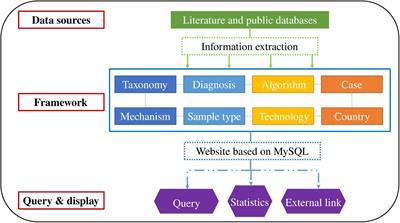EDITORIAL
Published on 30 Nov 2021
Editorial: Predictive Modeling of Human Microbiota and Their Role in Health and Disease
doi 10.3389/fmicb.2021.782871
- 2,398 views
- 3 citations
16k
Total downloads
64k
Total views and downloads
EDITORIAL
Published on 30 Nov 2021
ORIGINAL RESEARCH
Published on 02 Jun 2021

ORIGINAL RESEARCH
Published on 10 Feb 2021

ORIGINAL RESEARCH
Published on 19 Nov 2020

ORIGINAL RESEARCH
Published on 12 Nov 2020

ORIGINAL RESEARCH
Published on 10 Nov 2020

ORIGINAL RESEARCH
Published on 12 Jun 2020

ORIGINAL RESEARCH
Published on 10 Jun 2020

METHODS
Published on 06 May 2020

ORIGINAL RESEARCH
Published on 15 Apr 2020

REVIEW
Published on 03 Apr 2020
